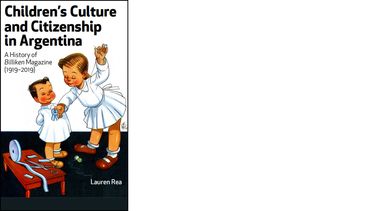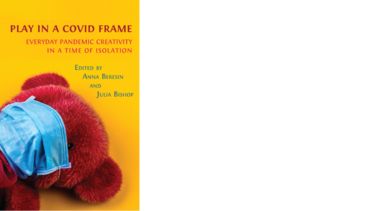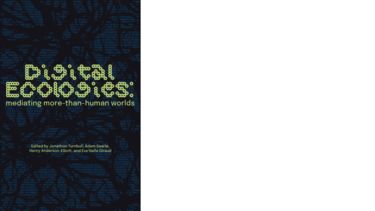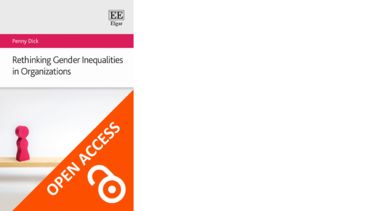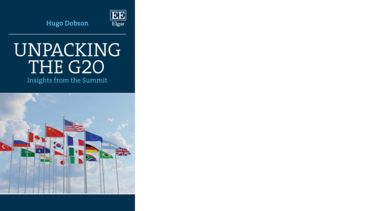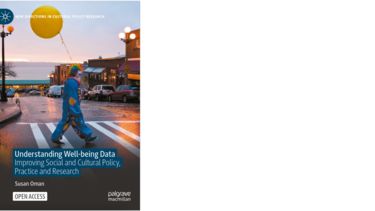Open Access monograph case studies
In this series of case studies, researchers from the University of Sheffield explore their experiences of publishing an open access monograph.
Video case studies
Professor Stephen Pinfield, Information School
Stephen's open access book will be published by Routledge in 2024.
Professor Renee Timmers, Department of Music
Renee's open access edited collection , is forthcoming with Open Book Publishers.
Dr Maria Tomlinson, School of Journalism, Media & Communication
Maria's open access monograph The Menstrual Movement in the Media: Reducing Stigma and Tackling Social Inequalities will be published with Palgrave Macmillan.
Textual case studies
- Professor Lauren Rea OBE, School of Languages and Cultures
-
(White Rose University Press, 2023)
Lauren Reaãs is the first academic history of Billiken Magazine. The book examines the enduring cultural impact of Billiken, the worldãs longest-running childrenãs magazine. It is published by , the fully open access publisher jointly owned by the Universities of Sheffield, Leeds and York.
Dissemination in two languages
I wanted to publish open access in order to reach more people because I knew the topic was broad enough to be of widespread interest. Open access also enabled me to retain the Spanish language rights so I was able to publish a Spanish-language version with a trade publisher in Argentina. If I had gone with a bigger publisher, I would have had less control over this; it would have been a point of negotiation, and I might have had to pay for the rights. But itãs part of the ethos of open access that the author retains copyright. My book is about a Latin American childrenãs magazine, which is why itãs very important for me to publish in Spanish, and itãs also important to have the open access English version because there is an international and anglophone community of Childrenãs literature and Childhood Studies scholars who donãt know much about Latin America because of the language barrier.
Visual elements
As this is a book about visual culture, it was important to be able to include colour images of Billiken magazine. In the open access version I was able to include as many as I wanted whereas in the Spanish-language print version this was a point of negotiation. It also meant I could think more creatively about what was going to be visible across the different formats. I was working closely with the publisher of the magazine and they had no problem giving me permission to use the images in an open access publication, especially as you can include images under a different licence from the book itself.
A Yorkshire publisher
I chose to publish the book White Rose University Press because Iãm based at the University of Sheffield, and I think itãs a great initiative. Someone in my department published with them, and had a good experience, so I thought, if I want to publish open access, why go elsewhere? The peer review process was extremely thorough and the application process was very streamlined - I didnãt have to apply separately for funding. Overall it was a positive experience, and Iãve now joined the White Rose University Press board.
- Dr Julia Bishop, School of Education
-
, ed. by Julia Bishop and Anna Beresin (Open Book Publishers, 2023)
Julia Bishop and Anna Beresinãs is an edited collection of essays that form a multidisciplinary approach to addressing questions about play within the confines of Covid-19. Illustrative images and recordings of interviews with children augment the text, providing the reader with further insight into the ways in which children and their games adapted to the constraints of the pandemic.
We wanted this book to be available to everyone
Ours was an edited book containing contributions about childrenãs creativity and play during the Covid-19 pandemic. My co-editor and I felt strongly that we wanted this book to be available to everyone, including those outside the academy, without barriers. So inclusivity and reach were key drivers behind our decision. It is also very useful to be able to recommend the book to students knowing that it is accessible to them irrespective of whether it is in the university library.
Overcoming copyright challenges
The licensing of images within chapters was a challenge, as Creative Commons licensing is relatively new and we as editors and the authors had little experience with it and its implications. We worked closely with authors to find the best solutions for each case, which was an intensive and bespoke process and certainly expanded our own knowledge.
Instantaneous access
The instantaneous access which open publication affords to anyone in the world is definitely a benefit, enabling people to consult the book as soon as they hear about it. We had 400 downloads in the first week and they are still continuing, which is gratifying. The ability for all contributors to see levels of engagement with the work is also a bonus and indicates where we may need to publicise it more.
Play in a Covid Frame was awarded the 2024 Opie Prize of the American Folklore Society's Children's Folklore section
- Dr Eva Haifa Giraud, Department of Sociological Studies
-
by Jonathan Turnbull, Adam Searle, Henry Anderson-Elliott and Eva Haifa Giraud (Manchester University Press, 2024)
Eva Haifa Giraud, Jonathan Turnbull, Adam Searle and Henry Anderson-Elliottãs questions how a proliferation of digital media is reshaping disciplines such as conservation, environmentalism and ecological politics. The collection gathers leading social science and humanities scholars to chart current understandings of these interactions, and sets the agenda for future research in interdisciplinary fields.
Mix and match funding
We decided to publish Digital Ecologies as an open access book after one of the editors was offered part-funding from a European Research Council project and exploring the possibility of match-funding from Sheffield. We were delighted at being awarded funding, as it gave us the opportunity to make a book project that was led by early-career researchers far more accessible than it ordinarily would have been.
Logistical challenges
Navigating contracts with large sums of money can be a bit daunting as a team who lack experience, but having such clear and swift responses from the university library to our enquiries was incredibly reassuring.
Visibility and access
We are hoping that publishing open access will make our work more visible and accessible to a wider range of audiences, which is especially important in light of the bookãs interdisciplinary focus.
- Dr Lizzy Craig-Atkins, Department of Archaeology
-
by Elizabeth Craig-Atkins and Karen Harvey (Manchester University Press, 2024)
Elizabeth Craig-Atkins and Karen Harveyãs studies embodied subjects through the intersecting disciplines of archaeology, history and material culture studies. The volume considers the themes of gender, rank, age, disability and maternity to explore the lived experiences of the material body in the period 1700-1850.
Democratising access
We decided to publish The Material Body open access in order to widen readership, as well as to reflect the fact that many of the papers include data from commercial archaeological projects. Contributors and collaborators in these areas do not always have reliable access to research behind paywalls, so publishing in this way allows us to democratise access to the research.
Negotiating multiple authors
Our book is an edited volume, and I was initially concerned that there might be issues with one or more authors working with commercially sensitive material, such as unpublished primary data. We also had to obtain approval from all authors to proceed with publication. However, everyone, including authorsã commercial employers, was very positive about the benefits of open access and no objections were raised. One contributor noticed that the choice helped them to fulfil their funder obligations ã they would otherwise have had to arrange open access publication for their chapter in isolation to meet these requirements, and it would have been a disadvantage for the volume as a whole if the open access element had been patchy and incomplete. Most authors did not have access to funds for open access independently, so it was great to publish the collection as a whole.
Increased readership
I would anticipate a much larger readership for both the individual chapters and the book as a whole. I'd hope that more people engage with the introduction, which I think is key to the impact of the book. Manchester University Press discounted the price of the print copy as part of the open access deal, so the print copy is now incredibly good value. I'd hope this will generate goodwill for the researchers, as we have tried hard to make our work as accessible as possible.
- Professor Penny Dick, Management School
-
by Penny Dick (Edward Elgar Publishing, 2024)
Penny Dickãs uses process ontology and post-structuralist thinking to shift the focus of the field to the ways in which we view the value of competitive roles and occupations which women have traditionally struggled to access. The monograph combines her intellectual theory with intriguing data to produce a challenge to mainstream conceptions of gender dynamics in the workplace.
Widening readership
I decided to go for open access with my monograph after some very helpful discussions with both Edward Elgar Publishing and with the Open Access team here at Sheffield. The biggest benefit that I see is that the text is going to be widely accessible and this is therefore an advantage for those individuals and institutions who might otherwise struggle to pay for new texts. A second reason is that of course if your readership increases, the chance of your ideas being much more widely disseminated also increases. As the topic of my monograph is one of my passions, I am very keen to facilitate this process.
Support from the library team
The process for publishing open access was rendered painless by the excellent support I received from the open access team here at Sheffield. They answered all my questions immediately and responded to the publisherãs requirements very quickly. Altogether, this experience has been very positive for me. I think this is definitely the route to take for anyone publishing a text where the readership is potentially niche but could be expanded through increased accessibility.
- Professor Hugo Dobson, School of East Asian Studies
-
by Hugo Dobson (Edward Elgar Publishing, 2024)
Hugo Dobsonãs explores the positions of members of the G20 and unpacks their plans, actions and impacts since 2008. This book addresses the future of the G20 through the perspectives of its individual member states, outlining how the forum might evolve in the coming years.
Increasing readership in developing countries
I knew from experience with journal articles that open access increases readership. My book potentially has a global audience because of its remit on the countries that make up the G20. Another reason was that the topic of the book ã the G20 ã is a central mechanism for governing the globe that includes countries from both the Global North and Global South. This means that there should be considerable interest in my book among both scholars and policymakers from G20 countries like Indonesia, India, China, South Africa and so on. These groups of people in these countries will be able to easily read the book if it is open access.
Open access is the future
I had neither reservations nor worries about publishing open access in any shape or form. I've not come across any prejudice against open access publications on the basis of perceived quality or prestige ã I think we all know that open access is the future.
Funding and reach
The University's Institutional Open Access fund is an absolute godsend and was easy to navigate. It's easy to apply and get your research to an audience quickly. Within days of application, I had a response from the open access team at the library.
Three months after publication I was contacted by someone from the Australian Treasury who had read my book and wanted to discuss it. I donãt believe that would have happened had the book not been open access.
- Dr Valerie Hobbs, School of English
-
by Valerie Hobbs (MayFly Books, 2023)
Valerie Hobbsã is an auto-ethnographic account of the harsh realities of living in the context of the Dominionist movement in the United States. It weaves together the authorãs lived experience with analysis of Dominionist theology and politics, crafting a narrative that tracks the impact of the movementãs ideology on interpersonal relationships. No Love in War has also been released as an audiobook, read by the author. What follows is Dr. Hobbs' account of publishing her book using an open-access model.
A model based on respect
My open-access monograph, No Love in War: A Story of Christian Nationalism, was published in free PDF and affordable paperback print forms in 2023 with MayFly Books. I have since re-released it in open access audiobook format on Spotify, with plans for a further video edition on YouTube. I chose to publish open access and with Mayfly this time for several reasons. First, this book focuses on a controversial topic of public interest and adopts an unconventional, interdisciplinary approach and style. On a related point, as an experienced academic weary of the conservative ethos of higher education research metrics, I wanted to find a publisher run by fellow academics not motivated by competitive market forces but who are rather invested in collegiality, respect and the open-mindedness and bold risk-taking in research this fosters. MayFly's was very attractive, as, in their words, it bypasses "the ãpublishingã industry, which is no longer in public hands and hence fails to represent any public."
An extremely uplifting experience
During the publication process, I found further advantages. The quality and amount of constructive editorial feedback I received with Mayfly far outweighed any I'd had previously. The open access publishing turnaround time was much quicker than with a traditional publisher (two months between final manuscript submission and publication). I also had much greater autonomy over the book's layout and design. Finally, I've had more and much richer engagement with a wider range of readers as a result of releasing this second book in various open access and otherwise inexpensive forms. This was my sincerest hope with this project! Publishing an open access monograph has been an extremely uplifting experience and has only shored up my commitment to open access publishing.
- Dr Emma Cheatle, School of Architecture
-
by Emma Cheatle, Christopher Rodgers, Rachel Hammersley, Alessandro Zambelli, John Wedgwood-Clarke, Sarah Collins, Olivia Dee and Siobhan OãNeill (Routledge, 2023)
analyses the relationships between urban green spaces and their wider environments, users and histories in order to suggest ways in which to defend their futures. Its authors come together to present a multidisciplinary text, combining historical research, contemporary legal scholarship and interviews with user groups in order to track the complex social history of urban commons.
Common land, common knowledge
The book was an output of an AHRC major grant, so we felt it was important to publish the research accessibly. Moreover, the subject was Common Land, so in the spirit of that topic it seemed even more pertinent to publish open, accessible research.
Consistent publishing experience
We had absolutely no reservations regarding publishing open access. The publisher is Routledge, so the publishing experience and peer reviewing process was unchanged. I donãt think open access should mean lower quality, rather that the process of funding open access should redistribute finances through a different model.
Greater readership
I believe research emerging from academia should be open access and available to a greater readership. It should be widely disseminated and easily available to read. I am a great supporter of the humanities and believe that the spirit and value of humanities research is that it should and can inform all other discourses. I am also the chief editor of the School of Architectureãs peer-reviewed academic journal field: which is free, open access and of high quality.
- Dr Krzysztof Nawratek, School of Architecture
-
by Krzysztof Nawratek, Daniel Medeiros de Freitas, Carolina Maria Soares and Bernardo Miranda Pataro (Routledge, 2023)
by Krzysztof Nawratek (Punctum Books, 2017)
maps the physical spaces of the Candomblûˋ and Pentecostal churches of Brazil through an understanding of their membersã beliefs and practices. The authors approach this complex setup through an examination of the broader political, social and economic implications and backgrounds of the members of the churches. is an edited collection suggesting the ways in which urban re-industrialization could be reshaped from a neoliberal business model to a radical and progressive social and environmental project. The text explores the ways in which industrial and residential spaces could be mapped on top of one another.
Beyond western academia
I have published two open access monographs, the most recent one funded by the University. My main reasons for publishing open access were the topic and general audience. The most recent book is about Brazil, with Brazilian co-authors, and hard copies are very expensive ã it's a barrier for potential readers to buy books at that price. The book is about Pentecostalism in Brazil, but Pentecostalism is a global phenomenon, also very strongly present in Nigeria and other countries in Africa. So it felt important to expand the readership, to make the book accessible beyond western academics.
Publishing with a smaller publisher
Routledge, who published Epistemic Ambivalence, is a traditional publisher, so there were no concerns here. On the other hand, Punctum Books, who published Urban Re-industrialization, publishes some unusual content, so I had some concerns as to whether the book would be seen as ãacademicã enough. However, I don't know if I would have the same concern now. The book came out very well, and has been cited by prominent authors. I also received a lot of editorial support from Punctum Books, who were very thorough and supportive. The whole process felt very rigorous.
Prestige
To some extent, I believe that open access now gives a little bit more prestige to the book. Making the book available and accessible to anybody means that the author must be convinced of its quality. It also makes advertising the book much easier, as you can present it to other people and immediately provide them with the link. There are suddenly no barriers to academic exchange ã in that sense, the open access model is purely positive. If you want to engage beyond academia, or act on discussions about decolonising the curriculum, it becomes very important to make research publicly accessible.
- Dr Susan M Oman, Centre for Machine Intelligence
-
, Susan Oman tracks the history of how data about people and populations has been collected and used for millennia. The book analyses the contexts of data and decision-making to aid understanding of how well-being data can be useful or misleading, and even a dangerous tool in policy, practice and research.
Universal accessibility
Although it is an academic monograph, this book is written for a general audience, as noted by its . It uses real-life examples for teaching and to improve practice and policy. It outlines the way that data about people's well-being can help social and cultural policy aims. It synthesises many years of my academic research, but also draws on my personal experiences of using data ã and being used as data ã to make these academic ideas accessible for everybody. This is why I was always keen to make it open access: to enable the findings and discussions to reach beyond academic communities, and the book was written to be usable and readable by lots of different people.
Reusing your own content to maximise access
I was lucky enough to gain Wellcome Trust funding to make the book open access. I was also successful in my application to three of the University of Sheffield's funds: Firstly, HEIF funding for knowledge exchange support enabled me to make the open access book available as . This is designed so that each section of the book has its own page and URL. Also, tables and figures that are published in the monograph can be shared as individual links to the website for teaching and training. Funding also enabled accessibility testing to ensure the website works for people who are not neurotypical.
Secondly, Public Engagement Development Funding was awarded to translate the key messages of the book into three short animations: . These videos were named a highlight of Understanding Society: A Festival of Social Science, and the University of Sheffield Player. Thirdly, was produced, featuring in the Pop-Up University and Festival of the Mind in 2021. I have used these materials when training people inside the UK Government as well as practitioners all over the world. That has been a great and unexpected benefit: publishing open access opens up opportunities for you to reuse your content in all sorts of engaging ways.
- Dr Emma Heywood, School of Journalism, Media and Communications
-
(Palgrave Macmillan, 2024)
Emma Heywoodãs investigates the role of radio in Mali, Niger and Burkina Faso, stressing its importance as a medium in providing women with voices, knowledge and power. The book approaches the intersection between women and radio in multiple ways, covering radioãs role in womenãs political engagement, finances, marriage, inheritance, and womenãs role in radio production.
Availability in the Global South
I chose to publish my monograph open access mainly because I work with a lot of people in the Global South ã therefore they would be able to access it freely, rather than paying ôÈ50 or more for my book, which is just unaffordable. I wanted it to be available to the people I had been writing about. People can also just access individual chapters, which is particularly useful for students. I also work with a lot of NGOs and practitioners in the Global South who would not otherwise be able to access the book since they don't have access to academic libraries, but my work is very relevant to them, so it's great that they can now access it.
A simple process
The process of getting it open access, from a university point of view, was very easy. I filled in a form to apply to the Institutional Open Access Fund, and within a couple of weeks they said, ãHere's your money!ã, although I had been warned that it wasnãt guaranteed. The open access team at the University library were great. The whole process was a lot easier than I anticipated.
-
Dr Christos Giamakis, Department of Archaeology
-
Identity and Power in Archaic Macedonia (600-400 BC) (Sidestone Press, 2024)
Christos Giamakisãs book provides a detailed narrative exploring the role of power across archaic Macedonia, as displayed through material culture in the formation of group identities across the region. Giamakis focuses on data from nine cemeteries in the region to propose a new theoretical framework for the study of the region as an alternative to past, ethnicity-based, approaches. Identity, Power and Group Formation in Archaic Macedonia (600-400 BC) encourages the reader to explore the ways in which social inequalities, power dynamics and social interactions all affect the potency of specific identities at the expense of others.
Global equity
I remember doing my masters degree in Greece and trying to access publications, and because the university didnãt have enough funding, I couldnãt access them. So for ethical reasons I wanted to support the open access movement and be part of it. I was relieved to be supported with the fees ã the university very kindly helped me with the application process to the UKRI central monograph fund in order to pay the open access charge, which seems like the biggest obstacle towards publishing open access.
Public scrutiny
The book is one of the outcomes of my PhD ã since I spent four years working on it, I wanted everyone to be able to access it so that they can judge if itãs actually a valuable contribution to the field! My PhD was partly funded by the UKRI, so it felt a bit unethical to ask for even more taxpayersã money to pay the high rates charged by traditional publishers for open access publications. For this reason, I chose to work with Sidestone Press. Their model is to publish everything open access, and they charge relatively low fees compared to traditional publishers. Just like traditional presses, there was a very thorough editorial process, which helped me to overcome the ingrained academic bias that a small publisher would be less respected.
Copyright
I am currently writing another two papers, which will be partly based on my PhD, using the same data that I gathered for the book. Publishing open access means that it is very clear I can reuse this data without the fear that it breaches copyright laws. Iãm pleased that Iãll be able to distribute the book freely, and itãs nice to have the publisher behind you, supporting you and advertising your work through their networks.
Help from the library team
Working with the library was great. They were really supportive from the first point, and even on some occasions when the rules were unclear, they were really thorough when explaining everything to me. The communication was very good with the university; it was effortless.
Are you interested in publishing an open access monograph? You may be eligible for funding. Please see our for up-to-date information about what we can currently support.




